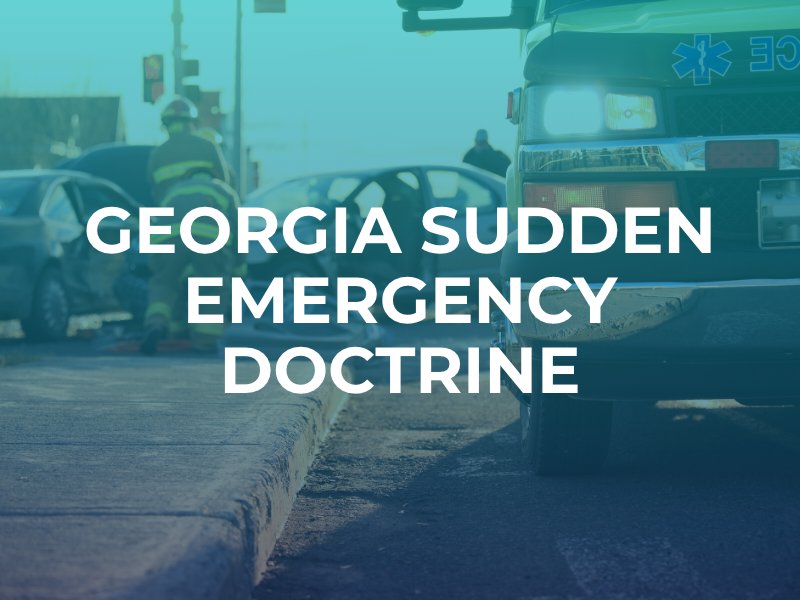Georgia Sudden Emergency Doctrine
No one expects that they will get into a vehicle accident. However, if you or somebody you care about has been injured in a crash that was caused by the careless and negligent actions of another driver, you should be able to count on the at-fault party’s insurance carrier to provide compensation for your damages. However, what happens if the at-fault driver’s insurance carrier says that they are not responsible for the incident because the crash was the result of a “sudden emergency?”

It is vital that you understand Georgia’s sudden emergency doctrine and how this could affect your car accident case in Atlanta.
What is the Georgia sudden emergency doctrine?
Georgia law allows for the application of the “sudden emergency doctrine,” which can be defined as an event or combination of circumstances that require immediate reaction in which a person did not have time for a deliberate exercise of judgment. When a defendant in a personal injury case uses this defense, they must do so from the beginning of their lawsuit. This is called an “affirmative defense.”
The doctrine of sudden emergency only applies to actions in which the defendant is forced to make a sudden decision because there is not much time to think about the best course of action. The law states that, in a sudden emergency, the defendant is not held to the same standard of reason and judgment as another individual who has the luxury of time to think about the safest course of action.
Examples of sudden emergencies
One example of a sudden emergency is if a defendant suddenly swerves to change lanes to avoid being hit by a tractor-trailer that changes lanes without using a signal. If the accident results in the vehicle that swerved striking another vehicle, then the sudden emergency doctrine may apply because the driver that swerved was faced with imminent danger and acted to save themselves.
Another example could be if a person swerves suddenly into oncoming traffic to avoid striking a pedestrian that jumped out into their lane. If the driver who swerved into oncoming traffic struck a vehicle head-on, they might wish to use the sudden emergency doctrine to avoid liability in the incident.
Limitations on Georgia’s sudden emergency doctrine
As with any legal doctrine, there are limitations. A defendant would not be able to argue a sudden emergency if they took part in creating the emergency themselves. Additionally, a defendant will not be able to claim a sudden emergency if they had time to think about and reason through the proper decision to make in the incident.
In these cases, a jury will be asked to examine the choices the defendant made in the small amount of time that they had to make it. A sudden emergency defense will be viable if the jury determines that the actions the defendant took, which may have caused death or serious bodily injury, are not due to carelessness but due to not having enough time to think and react in a safe way.